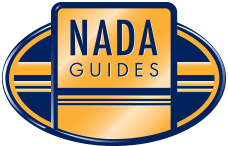Basic Factors Involved in RV Loan Approval
Lenders look at several factors when underwriting each RV loan. Every lender is different and stronger areas of your credit profile can help outweigh weaker ones. There are several consistent factors that each lender will pay careful attention to when considering a potential loan.
1. Credit Score - When evaluating the purchasing of a car or even a home, lenders commonly grant an approval based on factors and credit scores lower than those required to purchase an RV. These items, RVs and boats, are considered luxury items. If you were to lose a job, become disabled, or become unable to pay your normal bills, then it is common sense to assume you will stop paying "luxury" items first.
RV lenders normally require a credit score of approximately 700 or better, with no visible credit history of bankruptcies, repossessions, foreclosures, liens, etc. Even late payments as recent as the last several years can be reason for them to decline a loan
2. Debt-to-Income Ratio - Your debt-to-income ratio is the percentage of your monthly revolving debt in relation to your gross monthly income.
Revolving debt is generally considered to be expenses such as monthly mortgage payments, auto payments, credit card debt and other things that may contribute to your monthly debt obligations. Monthly expenses like utilities and other personal items such as cell phone bills are not considered in computing debt-to-income ratios.
Complete Our EASY On-Line Application Now!
Currently, lenders are limiting the maximum debt-to-income ratios at 42% to 45%. As little as an additional percent or two can be cause for a decline. You can figure your own debt to income ratio by dividing your total monthly revolving debt by your gross monthly income.
For example, to figure your own ratio, use a calculator as follows: $4,000 (monthly debt) divided by $10,000 (monthly income) equals 40% (debt-to-income ratio). Your own figures won't be as simple as this example, but be sure to use "monthly debt divided by monthly income" to get the correct percentage.
3. Liquidity - Liquidity is basically your total amount of readily available cash. Things that are considered are checking accounts, savings accounts, securities and investments. Company retirement accounts that are inaccessible or cause serious penalties for withdrawal are normally not regarded as "liquid assets".
In other words, how much money do you have available to pay bills if your income is interrupted, either temporarily or permanently? There is no set amount or ratio that can be computed. Each lender and situation is evaluated on a case-by-case basis. Excellent credit could allow a lender to accept lower liquidity and vise versa.
4. Loan Value - As with nearly every type of loan, the value of the item being purchased is a consideration. An RV's value is normally determined by its "book value" as listed in the N.A.D.A. valuation guide. Some lenders add value for optional equipment while others do not. Each has its own formula for determining the loan value of a particular RV.
You can look up RV values at NADA RV Values website, but be cautious of how many options you check as applicable. Many of these options are considered standard equipment by both the lender and the unit's manufacturer. For example: A refrigerator is always standard equipment, but a larger, side-by-side with an ice maker would be considered optional equipment.
Since the loan value of a particular RV is a major factor considered in the approval of each RV loan preapproval, you will need to provide basic information on one specific unit, no matter if it is for an actual loan approval or a pre-approval.
It's normally advisable to wait until you have narrowed down your choices to a particular type, year and price range. You can then provide a subject RV's information for the pre-approval. As long as you stay close to the subject vehicle's basic information, the lender can simply switch the collateral (RV information) on the same approval.
Pros and Cons of RV Loan Pre-Approval
You should be wary of "shopping" your RV loan pre-approval to multiple brokers since each one will pull your credit report from one or all three credit bureaus several times. Each broker's loan processing department will need to pull your credit for their own records and information as well as any lender(s) the loan is sent to for potential approval.
Complete Our Easy RV Loan Pre-Application Now!
Multiple credit inquiries can lower your credit score by several points per inquiry, although lenders realize that some inquiries are part of any loan approval and consider a few to be normal. Excessive inquiries, 3 to 4 or more in a very short period of time can damage your borrowing ability. Multiple credit inquiries or "Hits" as they are sometimes called, may appear as if you are shopping for loans because you have been turned down elsewhere, even if that isn't the case.
By applying with a single broker or lender you can avoid the problem of multiple financing inquiries on your credit report on the three major credit-reporting agencies. Also, by having your RV loan pre-approved you are able to close on your purchase much faster than if you wait until you find the exact unit you decide to purchase. This is especially helpful when buying on eBay, from other online sources or from a seller who may have other potential buyers who could "beat you to the punch" while you wait for your loan approval.
Just as you shop for the exact RV you may decide to purchase, it is wise to do your homework and check the rates, fees, and terms of various lending sources before you apply for your loan pre-approval. Once you have narrowed your choices down to one or two sources, then you can proceed with your RV loan pre-approval application. Once approved, you will be prepared and ready to purchase the RV that's just right for you.
Learn, Save and Enjoy!






